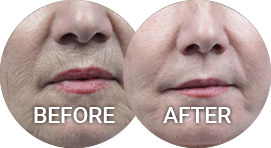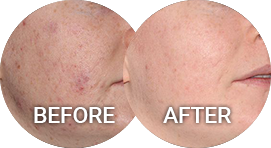Allergies and Heart Disease
Conveniently located to serve the areas of Phoenix, AZ

Understanding the link between allergies and heart disease– and how these conditions can impact your health– is important for preventing long-term cardiovascular conditions. Underlying inflammation from allergies can have a serious impact on your heart and cardiopulmonary system if it goes undetected. Many Americans have become so accustomed to the feeling of living with allergies that they do not know they have them.
At Pineapple Health, we offer allergy testing and treatments that take a holistic approach to the entire body. Dr. Kevin Chan, a board-certified lipidologist, has helped thousands of patients improve the quality of their lives with minimally invasive allergy treatments. Approximately 26 million people across the globe are affected by heart failure. (1) You do not have to be one of them. Contact our office or call (480) 961-2366 to learn more about how we can help you treat your allergies and improve your long-term health.
Take our Allergy Assessment Questionnaire to learn more about whether allergy testing is a good fit for you.
Contents
About Allergies and Heart Disease
Allergens kick your immune system into overdrive and wear on your body, resulting in underlying inflammation that can lead to several chronic health issues. If you have allergies, you have a higher risk of developing asthma and eczema, both of which have been linked to heart disease because they wear on your body’s internal systems. Heart disease and strokes combined are responsible for approximately 25% of deaths in the United States, (2) and living with untreated allergies can put you at risk of developing these life-altering conditions.
Despite the prevalence of allergies in the United States, many go untreated. More than 50 million Americans experience nasal inflammation from allergies (3), and approximately 25% of American adults are affected by seasonal pollen-related allergies. (4) Allergy testing can help you identify allergens and treat them to prevent inflammation that can put you at risk of developing heart conditions.
Food Allergies and Heart Disease
When your body has an allergic reaction, it creates antibodies called immunoglobulin E (IgE) to fight the inflammation. Infants who have a sensitivity to eggs and milk have a higher chance of developing asthma later in life. (5) However, the direct link between food allergies and cardiovascular disease is unclear. Food allergies do, however, increase the number of IgE antibodies in the bloodstream. During your consultation at Pineapple Health, we can analyze your blood for food allergies and discuss your medical history to create a treatment plan that helps reduce your risk of developing allergy-related conditions that could result in heart disease.
Aeroallergens
Aeroallergens are allergens that you inhale. They can irritate the lungs and contribute to the development of asthma which increases the risk of developing heart disease later in life. Common aeroallergens include: (6)
- Mold
- Animal Dander
- Weeds
- Trees
- Grass Pollen
If you are sensitive to animal dander and pollens, there is a higher chance that you will develop severe asthma as well. (6) We can perform an allergy test to identify allergens and reduce your risk. As the Fall season is approaching for Arizona, the most common allergens are weed pollens, including:
- Ragweed
- Sagebrush
- Russian Thistle
- Lambs Quarter
How Allergy Testing Works
Allergy testing is a diagnostic examination that helps you identify the allergens that are irritating your immune system. At Pineapple Health, we provide two types of allergy tests:
- Blood testing: When you come into contact with an allergen, your body responds by producing antibodies. We can analyze your blood for IgE antibodies to help us identify allergens.
- Scratch test: We will lightly scratch the surface of your skin to analyze its reaction and identify allergens.
After we analyze your test results, we can create a customized treatment to address your specific needs and help you find relief.
Allergy Treatments
After we identify the allergens that are causing inflammation in your body, we can administer allergy shots. Allergy shots are not vaccines, but they do help your body build up a tolerance to the allergen and prevent the possibility of another allergic reaction in the future. We can also spray an extract that contains the allergen beneath your tongue – sublingual immunotherapy (SLIT). At-home SLIT also comes in the form of pills or an extract that can help your immune system develop a tolerance to different allergens.
Allergy treatments are an effective, convenient way to improve your health and a form of preventative care against heart disease and other conditions linked to untreated allergies and inflammation.
Benefits of Allergy Testing
With allergy testing, you can identify the allergens that are causing inflammation in your body and prevent further reactions that could lead to long-term chronic illnesses such as heart disease, asthma, and eczema. You can also:
- Find relief from symptoms: If you consistently suffer from itchy eyes, a runny nose, or rashes, we can help you reduce your symptoms so you can feel more comfortable in your everyday life.
- Reduce daily over-the-counter medications: With allergy shots and SLIT therapy, many patients can reduce over-the-counter medications or prescriptions that can have adverse side effects.
- Long-lasting relief: We can help your body permanently build up a tolerance to the allergen to prevent inflammation that can lead to other health issues in the future.
- Enhanced quality of life: You can feel more comfortable performing day-to-day activities without managing allergy symptoms.
- Customized treatment: We create a targeted treatment specific to the allergen and your unique reaction to help you manage symptoms.
Candidates & Consultation for Allergy Testing

The best candidates for allergy testing are experiencing persistent symptoms such as sneezing, congestion, runny nose, and skin irritation. If you often feel unwell after eating certain foods or suffer from consistent allergic reactions, you are likely a good candidate for testing as well. During your consultation, we will ask about your symptoms to determine the best treatment plan for your needs. Please come prepared to discuss your medical history and lifestyle to help us identify potential allergens.
Recovery & Results
After your allergy treatment, you can enjoy relief from your symptoms. Many patients experience clearer sinuses, less itching, and fewer rashes. If you often experience congestion, you can enjoy feeling more comfortable in your body without side effects that make it difficult for you to enjoy life.
Other Treatments at Pineapple Health
Holistic Pain Management
Holistic pain management can help you find relief from the pain you experience daily. Your treatment will depend on the type of pain you are experiencing, and during your consultation, we will ask about your symptoms to determine the cause. We take a holistic approach to pain management and can recommend exercises, acupuncture, and herbal remedies to support your body. We may also recommend chiropractic care or massage therapy.
Women’s Health
Women face a variety of reproductive health concerns and are at a higher risk of developing migraines, depression, and arthritis than men. With customizable women’s health treatments and preventative health care plans, we can help you find relief from your symptoms and feel your best. We can provide general exams, well visits, imaging services, and specialty care such as cardiovascular support and breast services to help you feel your best.
Acute Diseases
Acute diseases can include infections such as a common cold, sore throat, rash, diarrhea, or a runny nose. With specialized holistic treatments that can fortify your body’s immune system. With a physical exam and diagnostic testing, we can identify areas where we can improve your health and identify allergens that are kicking your immune system into overdrive or putting you at a higher risk of contracting a disease.
To learn more, see our blog about allergy testing and additional treatments to improve your health.
Cost of Allergy Testing in Phoenix
The cost of allergy testing will depend on your unique treatment. We can customize your treatment and combine it with other therapies to help you achieve results. Contact our office or call (480) 961-2366 to learn more about how we can help you treat allergies to reduce underlying inflammation that can lead to chronic health concerns such as heart disease.
FAQ
Can allergy testing help me with seasonal allergies?
Yes, we can identify and treat seasonal allergies that disrupt your daily life. We can help you identify what is triggering your immune system and reduce it so you can enjoy the summer months.
Does allergy testing hurt?
No, allergy testing does not hurt but you may feel a slight prick during a scratch test or blood draw.
How long will it take to experience relief from my allergies?
Many patients notice results after a few days of allergy therapy. It can take some time for your immune system to respond to the treatment optimally.
Are allergy shots vaccines?
No, allergy shots are not vaccines. However, they can help your body build up a tolerance to reduce a future reaction to the allergen.
References
- Guo YG, Zhang Y, Liu WL. The causal relationship between allergic diseases and heart failure: Evidence from Mendelian randomization study. Zhu Z, ed. PLOS ONE. 2022;17(7):e0271985. doi:https://doi.org/10.1371/journal.pone.0271985
- CDC. About the Division for Heart Disease and Stroke Prevention. National Center for Chronic Disease Prevention and Health Promotion (NCCDPHP). Published May 24, 2024. Accessed May 28, 2024. https://www.cdc.gov/nccdphp/divisions-offices/about-the-division-for-heart-disease-and-stroke-prevention.html#:~:text=CDC
- Birch K, Pearson-Shaver AL. Allergy Testing. PubMed. Published 2020. https://www.ncbi.nlm.nih.gov/books/NBK537020/
- Lappe BL, Scovronick N, D’Souza RR, Manangan A, Chang HH, Ebelt S. Associations of pollen and cardiovascular disease morbidity in Atlanta during 1993–2018. Environmental Epidemiology. 2024;8(2):e296-e296. doi:https://doi.org/10.1097/ee9.0000000000000296
- Shaker M, Abrams EM, Oppenheimer J, et al. Food sensitization and cardiovascular mortality: An intriguing association in need of further study. ˆThe ‰journal of allergy and clinical immunology/Journal of allergy and clinical immunology/˜The œjournal of allergy and clinical immunology. 2024;153(4):1163-1165. doi:https://doi.org/10.1016/j.jaci.2023.12.018
- Farrokhi S;Gheybi MK;Movahed A;Tahmasebi R;Iranpour D;Fatemi A;Etemadan R;Gooya M;Zandi S;Ashourinejad H;Alavizadeh S;Khoddami S. Common aeroallergens in patients with asthma and allergic rhinitis living in southwestern part of Iran: based on skin prick test reactivity. Iranian journal of allergy, asthma, and immunology. 2015;14(2). https://pubmed.ncbi.nlm.nih.gov/25780879/



